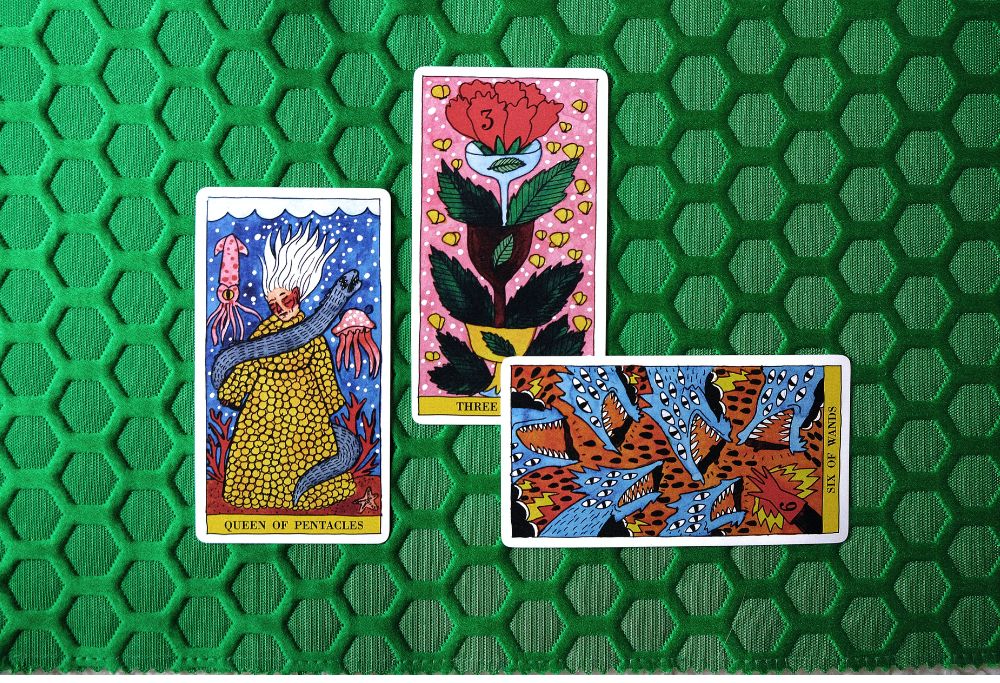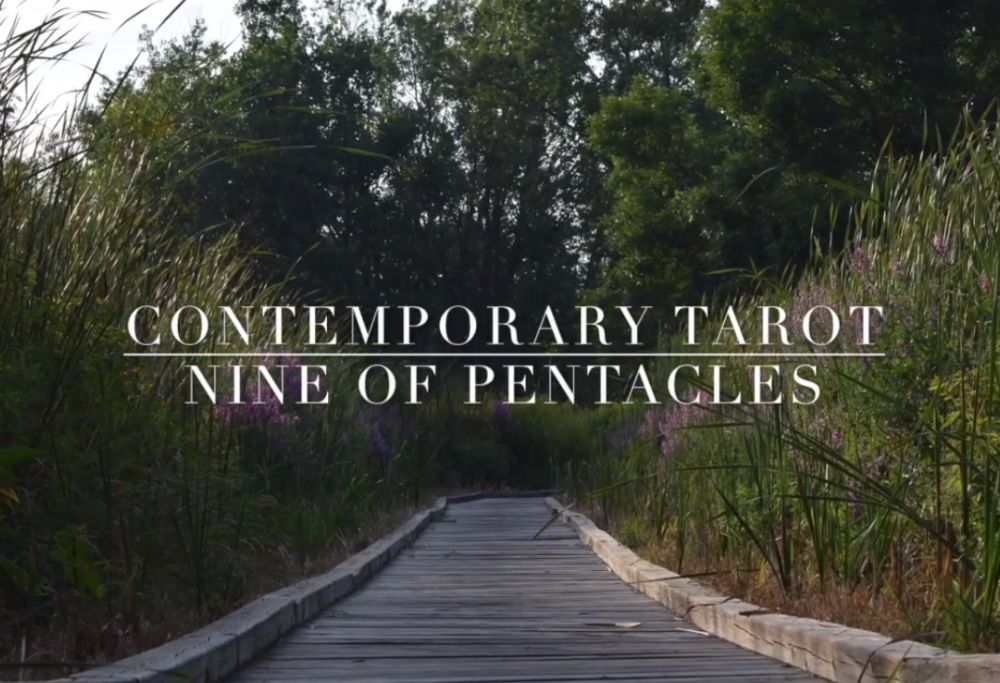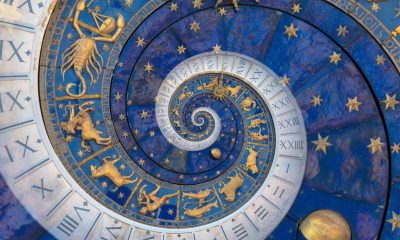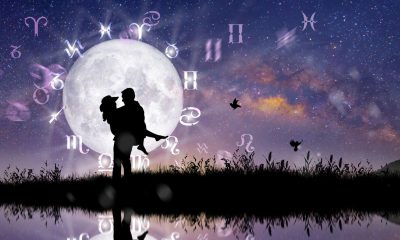Astrology
The Differences Between Christianity and Astrology: A Comprehensive Overview

In seeking a greater understanding and meaning of this world, a lot of people choose to use Christianity and Astrology. While these two philosophies may appear vastly divergent at first but they each offer a unique view of how the world works and our role within it. In this thorough review, we’ll explore the major distinctions between Christianity and Astrology, and the many similarities observed between these two theories. No matter if you’re a committed Christian or an avid at astrology, or simply looking to explore life’s most intriguing mysteries, this talk will certainly enthrall and educate you.
Astrology is a Study of Astronomical Impacts on Human Life
Astrology studies the effects of astronomical phenomena on our lives. The medieval era was when the fields of astronomy and astrology were connected and both were essential areas of research. It was the study of the cosmic sphere that was considered to be a basis for astrology, which attempts to link celestial phenomena with events on Earth and human activities.
The various religions of the world believed that the moon, sun planets, stars, and sun were able to influence their lives, their seasons, and even their daily lives. The very language used to describe the weeks of the week with Latin names that are derived from planets indicates the influence of these planets. The significance of astrology in the context of culture and history cannot be undervalued.
The Zodiac Wheel and Constellations
It is the Zodiac Wheel is a circle comprised of 12 segments, named in honor of constellations that appear in the sky. Each segment corresponds to a specific time period in the calendar. The concept originated from the early Babylonians who built an identical wheel that was divided into 12 segments. The significance of the constellations was due to their unique place in the sky in relation to the path of the sun called the ecliptic. Astrology employs to use the Zodiac signs to predict a person’s destiny. Astrologers use a person’s birth date as well as a chart of the planets and stars at this time period to predict their life’s circumstances, personality traits, and relationships.
Astrology in Ancient Civilizations
Astrology was practiced by different civilizations throughout the history of mankind. In the early days of Babylon astronomy and astrology were two disciplines that could predict things like weather events and the future Kingships. Babylonians built a wheel, which that was divided into 12 segments that were named after the ecliptic constellation and were thought to be unique because of the sun’s path. Nowadays, zodiac signs are assigned to the month’s date at around the 21st of each month. Astrologers utilize the date of birth along with their birthplace and other personal information to predict their future. However, the majority of experts believe that astrology has no scientific foundation.
The Role of Astrologers in Predicting Future Events
Astrologers have played an integral part in forecasting the future of events. From the time of the Babylonians through the present day, Astrologers have tracked the motions of celestial bodies and have interpreted the impact they have on human matters. Their predictions have varied from battles and weather patterns to relationships between people and career options.
However, scientists generally disapprove of the power of astrology to predict and cite a lack of evidence. Although some individuals may feel a sense of comfort from the predictions of astrologers it is essential to view these predictions with a critical ear and be aware of their limitations. In the end, the role played by Astrologers in forecasting the future of events is a debated and complicated issue.
The Basis of Horoscopes in Personalized Astrological Readings
The premise behind horoscopes and personalized astrological readings stems from the idea that the location of celestial bodies at the time of birth has an effect on their character as well as their future. Astrologers utilize the birth date as well as the time and place of birth to make a chart that displays the position of stars, planets, as well as other celestial objects at the date of their birth. They use this information to determine the future aspects of a person’s life, including careers, relationships, and personality characteristics. Horoscopes give a sense of being in control of one’s life, however, their accuracy is a subject of debate and is not scientifically verified.
Scientific View on Astrology and Astronomy
Scientifically-based astrology isn’t valid as a method due to the absence of empirical proof. While ancient civilizations attributed significance to astronomy and the motions of celestial bodies founded on the notion that these movements influence our lives and character traits. The idea is generally discredited by scientists because there is no proof to support the assertion. Astronomy is, contrary to popular belief a legitimate science that studies the physical universe that is not on Earth. It is a science that aims to study the nature and behavior of celestial bodies as well as how they affect the world we live in. But the two fields shouldn’t be misunderstood or mixed up since they are completely different in their own way.
Biblical Views on Astrology and Horoscopes
It outlines a clear position against the use of Horoscopes and astrology. It’s stated in Deuteronomy 18:10-12 “There will not be among you any one that… is a witch or a soothsayer or a person who interprets omens, or is a sorcerer or one who creates magic or is a medium or spiritists, or who summons dead people. All of these are abominations before God the Lord.” Christianity teaches that our destiny is in God’s hands and it’s not necessary to depend on the planets and stars to provide direction. Christians must trust in God’s plans for their lives and not rely on the astrology of horoscopes or astrology.
Christianity and Astrology: Compatibility Issues
Christianity and Astrology have been the subject of debate, with many Christians doubting whether the astrological system is compatible with their beliefs. The Bible states that seeking advice by any means besides God is not advised. Astrology may be a snare to God due to the fact that it gives power to stars and planets which belong to God. Christians do not require the study of astrology since they can look to God’s Word for direction and guidance. Although astrology might provide information about a person’s future by analyzing the alignment of the stars and planets, it’s not in line with the doctrines of Christianity and Astrology.
Christian Views on Fate, Destiny, and Free Will
Christianity and Astrology have different opinions on fate or destiny, as well as the freedom of choice. Certain Christians think that God has the final say in all aspects of their lives and others believe they are able to decide and direct their destiny. The debate over freedom of will and its relationship and divine knowledge is an important topic among theologians.
Some believe that the case is that if God knows all that is going to occur, free will can be challenged. Islamic doctrine regards free will to be the most important element that determines a person’s responsibility in their conduct. Divine providence theory is a different aspect in which Christianity and Astrology are different since astrology focuses on the concept of astral fatalism. Christians are believers in divine sovereignty.
Rejecting Astrology: Luther’s Critique of the Practice.
Martin Luther, a prominent personage of his time, the Protestant Reformation, rejected astrology as a method of practice. It was his belief that astrology was an evil weapon used by Satan and aimed to dissuade people from engaging in it. Luther condemned astrologers for making incorrect predictions and appointing certain events on the basis of alignment between the stars, instead of to God. He claimed that by using astrology to predict the future, people were surrendering their own free will and putting their trust in something else than God. Although astrology was gaining popularity during the time of Luther He remained steadfast against this method of divination.
Astrology
Archetypal Lovers: Exploring the Timeless Romantic Pairings

Introduction
Love has been a timeless and universal theme in human culture, and throughout history, various archetypal lovers have captured our imaginations. These iconic romantic pairings have been depicted in literature, art, and mythology, resonating with people across generations. In this article, we will delve into the concept of archetypal lovers, exploring their significance, characteristics, and enduring appeal.
1. The Definition of Archetypal Lovers
Archetypal lovers are recurring themes or patterns in romantic relationships that embody deep and fundamental human desires and emotions. These patterns are embedded in our collective unconscious and are reflected in the stories we tell about love.

2. The Origin of Archetypes in Love
Archetypes of love can be traced back to ancient myths and folklore, where certain romantic pairings emerged as powerful symbols of human yearnings and experiences.
3. The Hero and the Damsel in Distress
One of the classic archetypal lovers is the hero and the damsel in distress. The hero, often depicted as brave and noble, rescues the damsel in distress, who is in a vulnerable or perilous situation. This archetype signifies the human desire for protection and the triumph of good over evil.
4. The Star-Crossed Lovers
The star-crossed lovers, as popularized by William Shakespeare’s “Romeo and Juliet,” represent love that is thwarted by external circumstances, such as feuding families. This archetype embodies the intensity of young love and the tragic consequences of societal barriers.
5. The Forbidden Love
Forbidden Love explores the allure of relationships that defy societal norms or face opposition from others. This archetype delves into the complexities of human emotions and the courage to pursue love despite adversity.
6. The Opposites Attract
The opposites-attract archetype portrays the magnetic pull between individuals with contrasting personalities, backgrounds, or beliefs. This pairing highlights the idea that differences can complement each other and lead to personal growth.
7. The Eternal Soulmates
Eternal soulmates are two individuals destined to be together throughout multiple lifetimes. This archetype symbolizes the profound connection and spiritual bond that transcends time and space.
8. The Transformational Love
Transformational love involves personal growth and change through the influence of a romantic partner. This archetype emphasizes the power of love to inspire positive transformations in individuals.
9. The Sacrificial Love
Sacrificial love explores the willingness to make significant sacrifices for the well-being and happiness of a loved one. This archetype demonstrates the depth of devotion and selflessness in romantic relationships.
10. The Unrequited Love
Unrequited love represents the pain and longing of loving someone who does not return the same feelings. This archetype delves into themes of rejection, heartbreak, and unfulfilled desires.
11. The Love Triangle
The love triangle involves three individuals entangled in a complex web of emotions, creating tension and drama in the narrative. This archetype delves into themes of jealousy, rivalry, and difficult choices.
12. The Mature Love
Mature love is characterized by a deep emotional connection, understanding, and mutual respect between partners. This archetype explores the evolution of love as it matures over time.
13. The Love Beyond Time and Space
Love beyond time and space transcends physical limitations and explores the idea of connections that exist beyond the earthly realm. This archetype delves into themes of destiny and cosmic love.
14. The Archetypal Lovers in Contemporary Media
In modern storytelling, archetypal lovers continue to captivate audiences in various forms, from books and films to TV shows and social media. These timeless themes persist because they tap into our deepest desires and emotions.
15. Conclusion
Archetypal lovers hold a special place in human hearts, as they represent the universal yearnings and experiences surrounding love. From the hero and the damsel in distress to the love beyond time and space, these romantic pairings have left an indelible mark on our cultural consciousness.
Astrology
The Lover Archetype: Understanding the Depths of Passion and Connection

Introduction
Love is a complex and multifaceted emotion that has captivated humanity since time immemorial. In the realm of psychology and mythology, the concept of archetypes helps us understand the patterns and traits that define human behavior. One such archetype is “The Lover,” which embodies the essence of passion, connection, and desire. In this article, we will delve deep into the lover archetype, exploring its definition, significance, and how it manifests in various aspects of life.
Defining Lover Archetype
What is an Archetype?
Archetypes, as proposed by Swiss psychiatrist Carl Jung, are universal symbols and themes that exist in the collective unconscious of all human beings. They shape our thoughts, feelings, and actions, influencing how we perceive the world around us and interact with others. Archetypes are the blueprints of human behavior and hold great symbolic meaning.
Exploring the Lover Archetype
Lover Archetype represents an intense and passionate aspect of human nature. It is associated with the pursuit of love, beauty, and sensuality. Individuals embodying Lover Archetype are driven by deep emotions and yearn for profound connections with others and the world.
Common Traits of the Lover Archetype
People influenced by the Lover Archetype often exhibit traits such as empathy, sensitivity, and a heightened appreciation for aesthetics. They are romantic at heart, valuing emotional intimacy and cherishing the bonds they form with loved ones.

The Lover Archetype in Mythology and Literature
Examples of the Lover Archetype in Myths
Throughout mythological tales from various cultures, we encounter characters embodying Lover Archetype. From Greek mythology’s Eros, the god of love, to the alluring sirens luring sailors in the Odyssey, Lover Archetype takes many captivating forms.
Beloved Characters in Literature Exhibiting the Lover Archetype
In literature, Lover Archetype is evident in characters like Shakespeare’s Romeo and Juliet, who exemplify the intensity of love and its tragic consequences. Countless other novels and poems feature protagonists driven by the allure of passion and connection.
Lover Archetype in Psychology
Carl Jung’s Collective Unconscious and Archetypes
Carl Jung’s groundbreaking theory of the collective unconscious highlights the presence of archetypes in the human psyche. Lover Archetype is a vital component of this shared unconscious, shaping our relationships and emotional experiences.
Love and Attachment Styles
Psychologists study the impact of archetypes on love and attachment styles. Those influenced by the Lover Archetype may exhibit styles characterized by warmth, closeness, and emotional expression.
Impact of the Lover Archetype on Relationships
Understanding the Lover Archetype can shed light on the dynamics of romantic relationships. The desire for intimacy and connection can lead to fulfilling partnerships or, if unbalanced, create challenges.
Embracing Lover Archetype in Daily Life
Cultivating Self-Love and Self-Compassion
The journey of the Lover Archetype begins with self-love. Practicing self-compassion and acceptance allows individuals to form healthier connections with others.
Nurturing Romantic Relationships
For those influenced by the Lover Archetype, nurturing romantic relationships is essential. They can enhance intimacy by expressing their emotions and needs openly.
Embracing Passion in Hobbies and Interests
Lover Archetype often fosters a deep appreciation for beauty and creativity. Embracing passions in hobbies and interests can bring joy and fulfillment to life.
The Shadow Side of the Lover Archetype
Obsession and Possessiveness
Unbalanced expressions of Lover Archetype can lead to obsession and possessiveness, causing strain in relationships.
Fear of Abandonment
Individuals strongly influenced by the Lover Archetype may fear abandonment, influencing their behavior and decision-making.
Balancing Love and Independence
Finding a balance between the desire for love and maintaining individuality is crucial for personal growth and healthy relationships.
The Lover Archetype in Pop Culture
Iconic Movie Characters Representing the Lover Archetype
In popular culture, numerous movie characters embody the Lover Archetype, showcasing the beauty and complexity of love.
Musicians and Artists Embodying the Lover Archetype
Musicians and artists often draw inspiration from Lover Archetype, channeling their emotions into their creative works.
Finding Your Dominant Archetype
Reflecting on Your Traits and Desires
Understanding your dominant archetype, including the Lover, involves introspection and reflection on your emotions and desires.
Seeking Guidance from a Professional
A professional therapist or counselor can provide valuable insights into your archetypal inclinations and help navigate your emotional landscape.
Conclusion
Lover Archetype represents the profound human desire for connection, love, and beauty. As a symbol deeply ingrained in the collective unconscious, it influences our relationships, passions, and creative expressions. By embracing Lover Archetype with self-awareness and balance, individuals can forge meaningful connections, find joy in life’s aesthetics, and experience the transformative power of love.
Astrology
Nine of Pentacles Love: Embracing Independence and Deepening Connections

Introduction
Welcome to the world of tarot and love, where the cards can offer valuable insights into relationships and self-discovery. In this article, we will explore the significance of the Nine of Pentacles in love and how it can guide us in fostering meaningful connections and personal growth. Whether you’re single, in a relationship, or healing from past heartbreaks, the wisdom of the Nine of Pentacles in love can provide guidance and clarity on your romantic journey.

Understanding the Nine of Pentacles in Love
What are the Nine of Pentacles?
The Nine of Pentacles is one of the 78 cards in a traditional tarot deck, representing abundance, luxury, and self-sufficiency. It portrays a person surrounded by nature, symbolizing their independence and connection to the material world.
The Symbolism Behind the Card
Each element in the Nine of Pentacles in Love holds symbolic meaning, from the lush garden to the elegant clothing. Understanding these symbols can enhance our interpretation of the card’s significance in love and relationships.
The Tarot and Love
Before delving into the specifics of the Nine of Pentacles in Love, let’s explore how tarot cards, in general, can offer valuable insights and guidance in matters of the heart.
The Nine of Pentacles in Love
Explore the profound lessons the Nine of Pentacles in love offers to enrich your love life and personal journey.
Embracing Independence
Learn to celebrate your independence and embrace your own company before seeking a romantic partner.
Appreciating Your Own Worth
Understand your true value and worth, fostering healthier relationships with a solid foundation of self-love.
Finding Self-Sufficiency in Love
Discover the beauty of interdependence and how two self-sufficient individuals can create a strong bond.
Building Strong Foundations
Learn how the Nine of Pentacles in love encourages you to build a solid foundation for a lasting and meaningful relationship.
Taking Time for Yourself
Explore the importance of self-care and finding time for personal growth, even within a committed relationship.
Nurturing Relationships
Discover how the Nine of Pentacles in love emphasizes the significance of nurturing love and building emotional intimacy.
Signs and Aspects
Examine the Nine of Pentacles in love connections to various signs, elements, and astrological aspects.
Nine of Pentacles and Compatibility
Discover the compatibility of this card with different zodiac signs and its implications on relationships.
Reversed Card Interpretation
Understand the reversed position of the Nine of Pentacles and its potential impact on love and romance.
Upright Card Interpretation
Explore the upright position of the Nine of Pentacles and its positive influence on relationships.
Astrological Associations
Uncover the astrological signs associated with the Nine of Pentacles and how they can shape romantic dynamics.
Numerology and the Nine of Pentacles
Learn about the numerological significance of the number nine and its impact on this tarot card’s meaning in love.
Elemental Connection
Discover the Earth element’s influence on the Nine of Pentacles and its representation of grounded love.
Healing from Past Relationships
Find guidance on healing and growing from past relationship experiences to open your heart to new love.
Letting Go of Baggage
Explore the importance of releasing emotional baggage to welcome fresh and meaningful connections.
Learning from Past Mistakes
Understand how past relationship experiences can serve as valuable lessons for future romantic endeavors.
Fostering Emotional Growth
Discover how healing from past hurts can lead to emotional growth and healthier relationship patterns.
Opening Up to New Love
Learn to be open to new romantic opportunities without being hindered by past disappointments.
Reconnecting with Yourself
Explore the journey of reconnecting with your true self after experiencing heartbreak.
Navigating Long-Distance Relationships
Gain insights and valuable tips for sustaining a loving connection when distance separates partners.
Communication in Absence
Discover effective communication strategies to maintain intimacy and connection in a long-distance relationship.
Trust and Security
Explore ways to build and maintain trust and security despite physical distance.
Planning Visits and Shared Goals
Learn how to plan visits and set shared goals to keep the relationship strong.
Managing Jealousy and Insecurities
Address jealousy and insecurities that may arise in long-distance relationships and find healthy ways to cope.
Sustaining Emotional Intimacy
Discover how to sustain emotional intimacy and closeness despite the physical distance.
Making It Work: Tips and Advice
Practical tips and advice for making a long-distance relationship thrive.
Cultivating Self-Love and Confidence
Explore the importance of self-love and confidence in attracting and maintaining fulfilling relationships.
The Power of Self-Affirmations
Discover the transformative impact of positive self-affirmations on self-love and self-esteem.
Prioritizing Self-Care
Learn the significance of self-care in fostering a healthy and confident mindset.
Seeking Personal Growth
Explore the journey of personal growth and self-improvement in the context of love.
Overcoming Insecurities
Address common insecurities and learn strategies to overcome them in relationships.
Embracing Your Authentic Self
Understand the value of embracing your authentic self and letting go of pretenses in love.
The Nine of Pentacles and Marriage
Explore the dynamics of the Nine of Pentacles in the context of marriage and long-term commitment.
Creating a Strong Partnership
Learn how to build a strong partnership based on mutual respect and admiration.
Balancing Independence and Togetherness
Discover the art of balancing individual independence with togetherness in a marriage.
Financial Considerations
Address financial considerations and planning for a secure future together.
Preparing for Commitment
Explore the process of preparing for commitment and discussing future plans with your partner.
Supporting Each Other’s Goals
Learn how to support and encourage each other’s personal and professional goals.
Coping with Heartbreak and Loss
Find solace and guidance in coping with heartbreak and navigating the healing process.
Embracing Grief and Healing
Explore the healing process and the importance of embracing grief after a breakup or loss.
Seeking Support from Loved Ones
Discover the power of seeking support from friends and family during challenging times.
Focusing on Personal Growth
Understand the transformative potential of focusing on personal growth after heartbreak.
Allowing Yourself to Love Again
Learn to open your heart to love again and take a chance on new relationships.
Finding Love as a Single Parent
Explore the unique journey of finding love as a single parent and nurturing both parental and romantic roles.
Honoring Your Parenting Role
Discover the importance of honoring your role as a parent while seeking romantic connections.
Being Open to Love as a Parent
Explore the challenges and rewards of being open to love as a single parent.
Balancing Parenting and Dating
Learn how to balance parenting responsibilities with dating and building new relationships.
Communicating with Your Child(ren)
Explore the importance of open communication with your child(ren) about dating and relationships.
Introducing Your Partner to Your Child
Discover valuable tips for introducing your new partner to your child(ren) in a positive and healthy way.
Conclusion
In the journey of love, the Nine of Pentacles in love teaches us the significance of embracing our independence, finding self-sufficiency, and nurturing our relationships. Whether you are seeking new love, healing from past heartbreak, or navigating a long-term commitment, the wisdom of the Nine of Pentacles in love can guide you toward a more fulfilling and love-filled life.
Remember, every step you take on this path is an opportunity for growth and self-discovery, allowing you to create lasting and meaningful connections with others.
-

 Astrology3 years ago
Astrology3 years agoThe Lover Archetype: Understanding the Depths of Passion and Connection
-

 Astrology3 years ago
Astrology3 years agoHow Do I Get My Ex Back?
-

 Astrology3 years ago
Astrology3 years agoWhat personality would suit each major arcana tarot card?
-

 Astrology3 years ago
Astrology3 years agoArchetypal Lovers: Exploring the Timeless Romantic Pairings
-

 Astrology3 years ago
Astrology3 years agoRecognizing Vesta in Astrology
-

 Astrology3 years ago
Astrology3 years agoThe Role of Astrology in Self Discovery: How it can help you understand yourself better
-

 Astrology3 years ago
Astrology3 years agoAre there any astrological relationship patterns?
-

 Astrology3 years ago
Astrology3 years agoThe connection between astrology and feng shui

